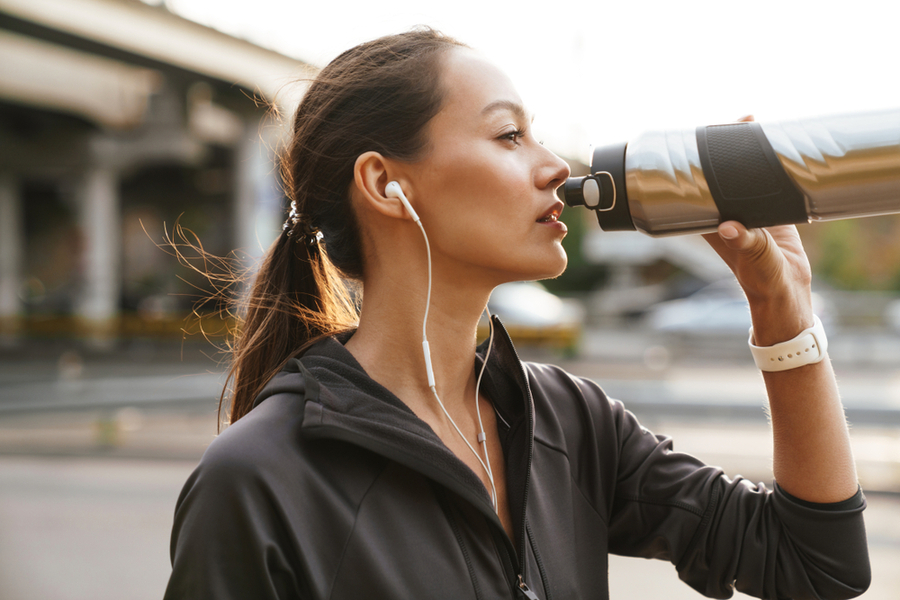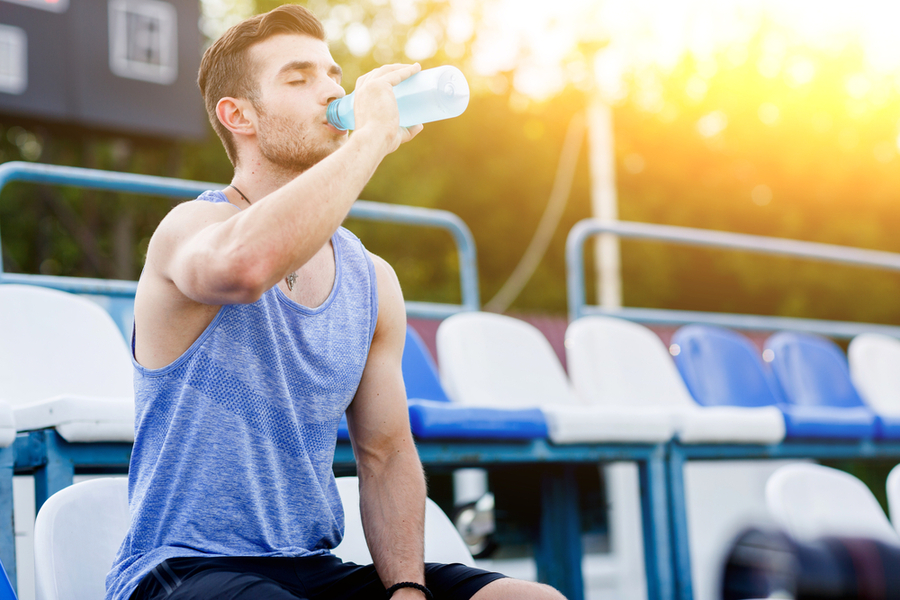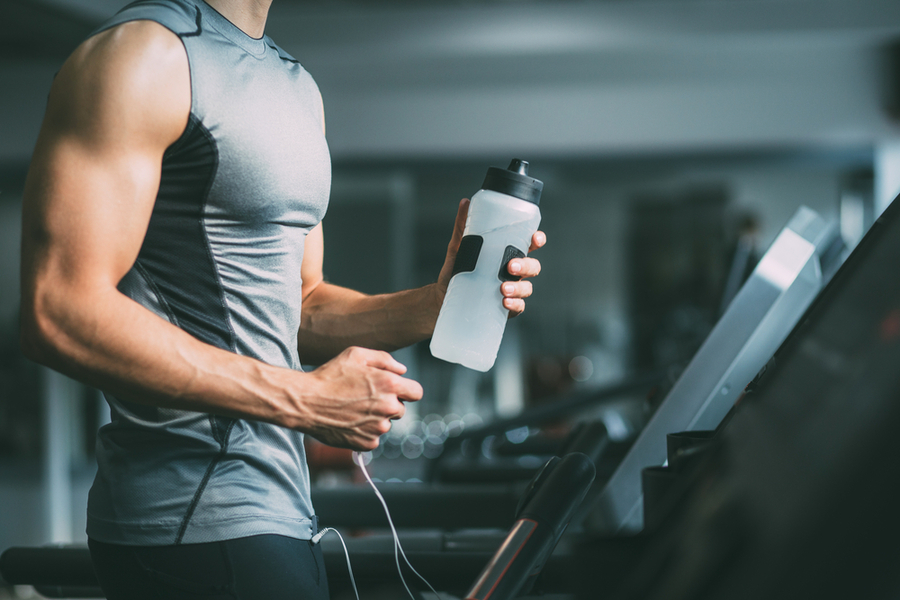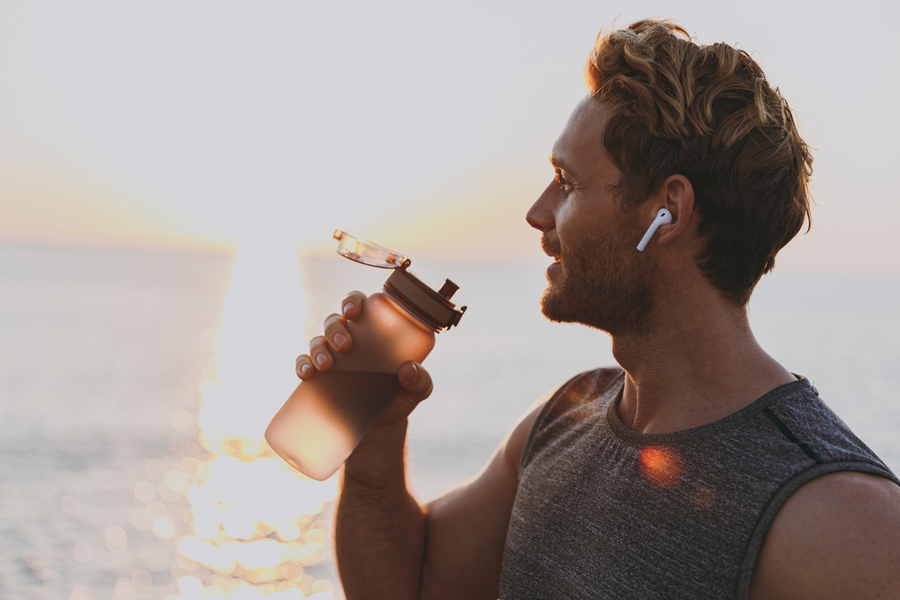
Among drinks, water takes the crown for being the most beneficial drink to the human body. Also, it is necessary for the smooth functioning of your body and keeping it healthy. Hydration can be maintained in several ways, but there isn’t anything better than plain old water.
Working out is a good way to keep your body fit and maintain a healthy mind and body. However, drinking enough water is a basic necessity, as exercising can make you lose fluids quicker.
It can’t be more true when you think of athletes since they follow a strict routine to keep themselves in shape. Water provides hydration and a momentary energy boost to the muscle, which can enhance a player’s performance and prevent fatigue during the game.
It brings us to how much water an athlete should drink daily.
Generally, the weight of your body in kilograms is the amount of water in ounces you should drink daily, whether you are an athlete or not. However, an athlete drinking 8 ounces of water for every half-pound loss in weight is a general guideline while working out.
Here we will give you a breakdown of how much water your body needs during exercising or workout and why drinking water is beneficial during these strenuous activities.
Daily Water Intake for an Athlete

The amount of water an athlete should drink varies from one individual to another. While several rules are associated with how much is less, okay, or excess, there isn’t a definitive answer.
Therefore, you should consider how these rules fit you and improvise accordingly. On a general estimate drinking 2-3 liters of water/day is recommended for an average adult, but in the case of an athlete, this limit is much more and based on their exercising regime.
Before Workout
For starters, if you want to ensure a smooth exercise or workout experience without feeling fatigued, drinking water well before exercising is the way to go.
Ensure you hydrate your body properly by drinking 2-3 cups of water 3-4 hours before your workout. Also, this amount is excluded from the daily water intake limit.
That’s not the end; drinking one more cup of water during the warm-up or half an hour before starting is recommended, as it also helps to maintain bone health and lubrication in joints.
During Workout
The amount of water your body may need can range from 1-2 liters based on the intensity of the workout and the rate of sweating. However, as a rule of thumb, drink a cup of water every 20 minutes or every 15 minutes if you sweat a lot during the workout.
After Workout
The final step is to hydrate your body after you complete your workout. A rough estimate is to drink a cup of water within half an hour after your exercise, but making a better guess is based on your weight loss.
Weighing your body before and after you exercise can help you calculate the amount of water you should drink, e.g., a cup of water for every half-pound or two cups per pound, and so on.
Another thing to note here is that not only water but your body also needs electrolytes, which water cannot provide. So, balancing things out is the key here.
Drinking excess water isn’t recommended even for athletes, as it can cause electrolyte imbalance, which can be life-threatening.
Parameters That Affect Fluid Loss

Several parameters affect the amount of fluid you will lose over time while working out, but some of the primary contributors are as follows:
Temperature
The type of weather determines the surrounding temperature. In summer, the temperature is high compared to the temperature during winter. Therefore, you lose more fluids during summertime and need more hydration.
Contrarily, cold weather tinkers with your ability to feel thirsty. That’s why; you should drink more water during winter.
Intensity of Workout
The intensity of your workout is another factor that contributes to water loss and increases the need for hydration. It is also linked with endurance exercises, as the more you work, the more fluid loss you will experience.
Sweating
Sweating is the primary reason for losing fluids and electrolytes from your body, as it is a mechanism of your body to cool it down to maintain the optimum conditions for various enzyme functions.
There is also a little something here, as some people sweat more than others, which can increase fluid and electrolyte loss and increase the need to replenish them during exercise.
Altitude
Exercising at a higher altitude has a demanding effect on the body, as less oxygen is available as you go up. It causes a dehydrating effect, and your body requires more fluids to stay hydrated.
Why It’s Important to Hydrate

More than half of your body is water, so it is no surprise that water is required for even the tiniest function or chemical reaction in your body. If not hydrated, your body experiences fatigue during exercise.
Also, it impacts your brain in decision-making, focus, and concentration.
There are several reasons you should maintain appropriate hydration, which is especially true in case you are an athlete.
- It increases performance by preventing fatigue.
- It promotes better heat loss from the muscles preventing muscle injuries.
- It prevents toxins from accumulating and readily flushes them out of your system.
- Hydrating helps regulate blood pressure.
- Maintains healthy bones, promotes better brain functionality, and smooth digestive functionality.
Conclusion
Before closing, now you know how much water an athlete should drink and why it is significant to stay hydrated. Water is life and crucial to sustaining it; therefore, for an average adult drinking 2-3 liters per day is the recommended amount.
However, for an athlete, the amount of water varies based on body weight, the intensity of the workout, temperature, altitude, and how much you sweat.
But as a rule of thumb, excluding the general water limit, drinking 3-4 cups a few hours before the workout, a cup every 15-20 minutes during exercise, and a cup after it is the recommended amount.









